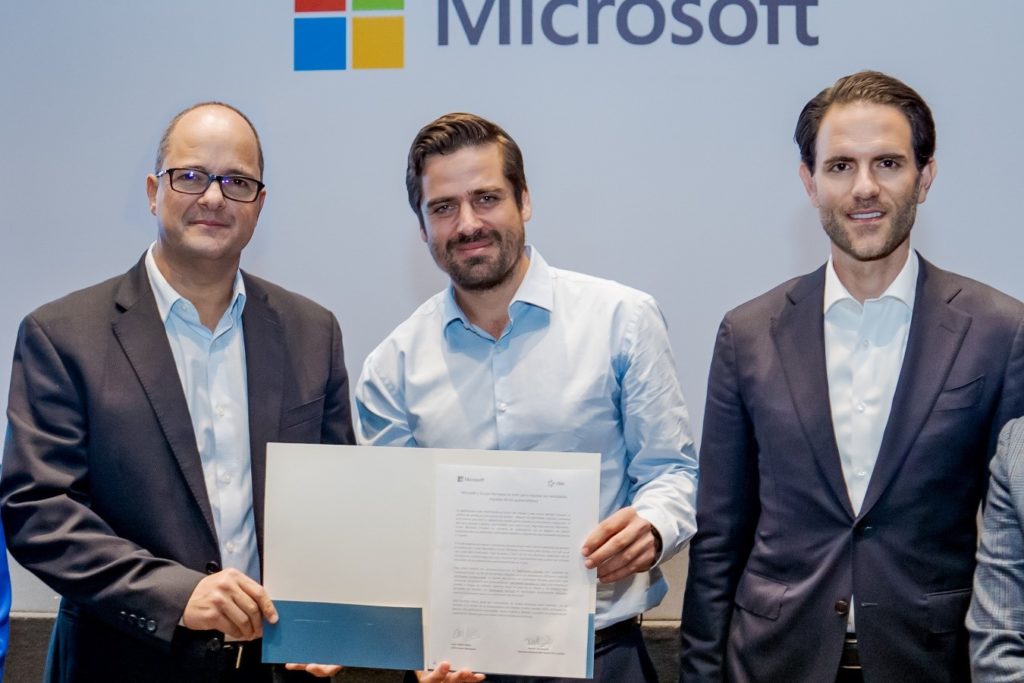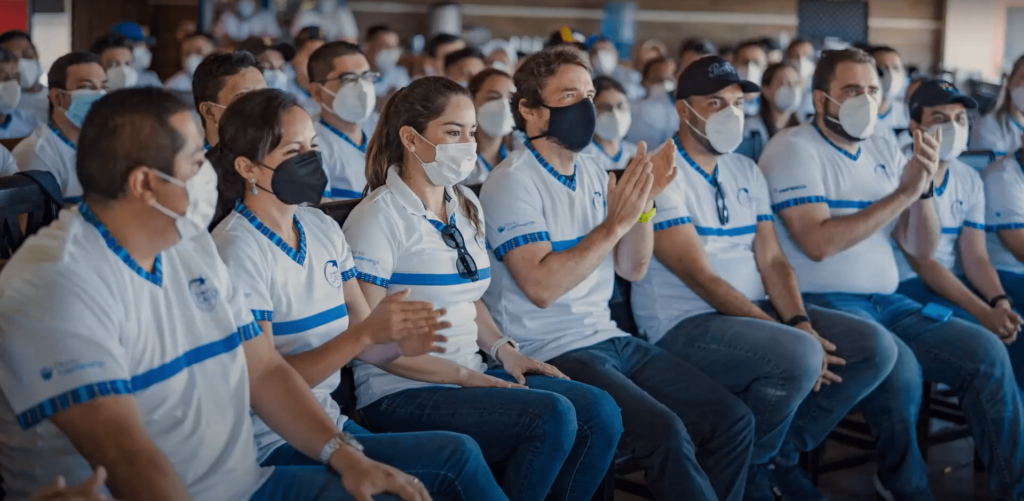
Digitization is redefining the future of work and this new reality requires a paradigm shift for all actors. Acquiring the necessary digital skills is the way to open up a range of new opportunities for growth and development, not only for young people and adults, but also for the entire country. Under this premise, Microsoft and Grupo Mariposa signed a collaboration agreement with the aim of carrying out training that develops digital skills and improves opportunities for young people and women, starting with the departments of Sacatepéquez, Quetzaltenango and Sololá, so that they can access quality jobs that provide a better income.
With this goal in mind and aware that no single actor has the ability to generate change on its own, Microsoft and Grupo Mariposa began this alliance hoping that it will become a strategy that unites many more organizations that want to generate change for the disadvantaged populations in the country. Grupo Mariposa will be setting up training centers starting with three strategic areas: the Enrique Castillo Monge school, in the village of El Porvenir, between Sacatepéquez and Escuintla; the Municipal Hall of San Juan La Laguna in Sololá; and the cbc agency in the city of Quetzaltenango.
This partnership will provide training in digital skills to learn the fundamentals of the use of digital technologies such as devices, software and the Internet; foundational skills, where they will discover the essential soft skills to interact effectively with other people; Role-Based Skills, which consists of accessing LinkedIn Learning courses based on your area of interest and in-demand jobs; as well as technical skills in widely used technologies as they prepare for a Microsoft certification.
The main beneficiaries of the project will be young people and adults who want to access job opportunities, shopkeepers, women recyclers from the “Atitlán Recicla” Cooperative, micro and small entrepreneurs from these communities, among others. “Technology has to be at the service of the great challenges of our region and leave no one behind. With this alliance with Grupo Mariposa we want to generate opportunities and improve the quality of life of Guatemalans, one person and one community at a time. Together we can empower young people, women and micro-entrepreneurs with training and digital skills that allow them to access better opportunities that improve their quality of life”, said Daniel Verswyvel, general manager of Microsoft Central America.
This initiative reaffirms Grupo Mariposa’s commitment to achieve a more equitable society, promoting equal opportunities for men and women of all ages to access decent employment sources that allow them to develop and have a better quality of life. “Grupo Mariposa is a people-centered organization that seeks to create conditions for the multidimensional well-being of its employees, customers and suppliers, especially micro and small businesses, and that promotes the comprehensive and inclusive development of communities. This alliance with Microsoft allows us to contribute to the development of the digital skills that are necessary to improve their economic income and their quality of life”, said Juan Pablo Mata, CEO of Grupo Mariposa.
Closing the gaps in digital skills is critical in an increasingly digital and global world, and it is a win-win for society: People benefit from acquiring digital skills, since they are those that the market most demands and those that generate better quality jobs with higher remuneration, it allows them to access educational resources and optimize their own ventures. It brings benefits to companies, which will have less difficulty in finding talent, lower their hiring and training costs, and increase productivity. The country gains in competitiveness by having a more trained workforce that allows it to accelerate its digital transformation.
With this vision, both Microsoft and Grupo Mariposa hope that more organizations will make common cause and join this initiative in order to achieve greater impact and scale to benefit more Guatemalans. “Digital skills play a central role in fostering a more inclusive labor market adapted to the demand for talent. By having better trained, better prepared and more productive people, we managed to promote the development, innovation and competitiveness of the country”, mentioned Erick Sosa, country manager of Microsoft Guatemala.
This initiative is part of the commitment of both companies to contribute to the Call to Action of the Vice President of the United States, Kamala Harris, focused on supporting vulnerable populations -such as women and youth-, and investing in job training programs that promote economic opportunities.
###
About Grupo Mariposa
Grupo Mariposa believes in the power of the combination of talent, passion and excellence to achieve our dreams and be part of the solutions to build a better future. Its mission is to develop value to catalyze a positive impact in the world.
About Microsoft
Microsoft (Nasdaq “MSFT” @microsoft) enables digital transformation for the intelligent cloud and edge era. Their mission is to empower every person and organization on the planet so they can achieve more.

